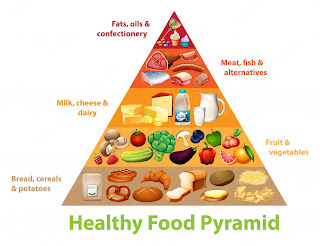Increasing juvenile obesity is the elephant in the living room that everyone sees and no one want to address. More and more children are overweight and headed toward obesity. But discussing it or even being concerned about overweight kids is often regarded as fat-shaming or bullying. Here are lesson plans to prevent and treat childhood obesity without ever mentioning weight loss.
Childhood obesity is tricky to deal with for two reasons. First, in puberty, many tweens get heavier and may even be called overweight by a doctor. But after puberty they slim down. This was my experience. Weight loss diets and calorie restricting may actually be dangerous. Calorie restricting such as the 1000 calorie diet I was put on at age 8, deprived me of nutrients needed for a growing body. It also caused eating disorder issues. Also, the extra weight is necessary for health after we lose weight in puberty.
What is chronic obesity and what is overweight that will right itself after puberty? There are several factors. Is the entire family overweight? Is the child active or sedentary? How old is the child? A three-year old with obesity is more at risk than, say, a normal weight child who becomes overweight as a tween, as I did. This overweight period is usually temporary. And some kids are just bigger than others.
Another issue is that overemphasis on weight loss can be a form of fat-shaming and bullying. It can also lead to eating disorders, low self esteem, anxiety and depression. But yet, children with chronic obesity that will not disappear in puberty, are at risk of many other health problems including diabetes, sleep apnea, hypertension and other issues. Movement and exercise are more difficult.
So how to prevent or treat juvenile obesity without discussing weight loss?
1) Food lesson plans aimed at healthy eating. Teach the food pyramid and food groups, using these free printable lesson plans. Nutriton.gov has many free nutrition printables including recipes, My Plate activities, coloring pages, food diaries and lesson planners. Here are free printable food journals and nutrition trackers.
2) Engage students in physical activities and active learning as much as possible. Use these free printable DEAM (Drop Everything and Move) activities. DEAM is like DEAR (Drop Everything and Read), which intersperses the school day with unplanned exercise or reading activities. I especially like DEAM because they are random surprise fun activities that get kids out of desks and moving. These might include dancing, calisthenics or active games.
3) Go off screen and hands-on. Most children spend more time watching than doing: TV, online on phones, computers and video game systems. I'm a Shipt shopper and its a sad commentary that when I drive thru neighborhoods in the summer, I see very few children out playing but TVs on or kids playing on phones. Utilize these free printable lesson plans on screen time dangers. Kids Health offers printables and resources to help kids understand why too much inactivity is harmful and how to monitor their screen time.
4) Provide active activities in lieu of sedentary seat work and workbooks. Montessori type learning centers get kids off the seat and actively learning. Check out this blog for a gajillion learning center activities for science, math, reading, writing, social studies and more. Here are fitness activities to keep kids actively engaged.
Will these activities end childhood obesity? Not alone. But with support, guidance, education and care, kids can learn to be their healthiest selves.

No comments:
Post a Comment